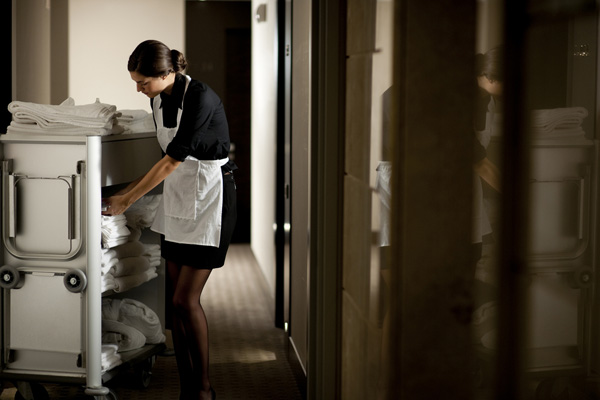
Grant McCurdy, from the DoubleTree Hotel in Edmonton, has found it efficient to hire about 25 temporary foreign workers as housekeepers and janitors in his hotel staff.
But when changes in the federal temporary foreign worker program has been implemented and up to 16,000 temporary workers in Alberta alone are sent back to their homelands, McCurdy, among other Canadian businessmen, face the consequence.
“We’re definitely feeling the impact. We pay the going rate, but it’s not high-paying field, and we’re finding local people don’t want the work. With camps closing in the oil patch, we thought we’d get a rush of applicants, but it’s not happening,” McCurdy says, mentioning that he now has three vacant positions he finds hard to fill.
“It’s a permanent problem – having to do more with less people. Margins aren’t great in the hotel business. We all have to look at ways to save labor,” he adds, pointing out to the trend towards automated services like the automated room reservation and check in.
Mostly, foreign workers from the low-wage service sectors such as hotel staffs, fast food chain crews and construction workers are the ones sent back home.
“It’s a shame to lose good workers. We had to put people on return flights that have been here for several years. They have no jobs to go home to, but there’s nothing we can do,” McCurdy says.
According to Alberta Federation of Labour (AFL) president Gil McGowan, the changes in the temporary foreign worker program prompt employers to pay higher wages to low-wage workers.
“The changes to the program are a significant step in the right direction. We don’t want to see any more TFW permits for low-wage employers, but the workers who are already here should be allowed to stay,” McGowan says, adding that the country’s economy could not afford a two-tiered labor market.
Labor unions condemn temporary worker program
Some labor unions also condemn the temporary worker program overall as it depresses wages and treats foreign workers unjustly. They assert that there should be an easier path to permanent residency and citizenship.
“The program itself is fatally flawed. It’s bad public policy but the people themselves that have come into the country under the policy have done nothing wrong,” McGowan says.
“I think it will be mayhem in Fort McMurray if the TFWs have to leave,” YMCA community programs executive director Jennifer Best adds.